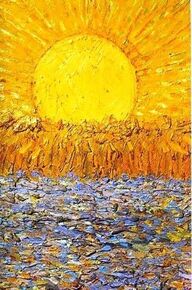 A few times each month I have a commitment that necessitates driving on the freeway heading east and which sometimes coincides with the sun coming up over the skyline. It is always thrilling. It reminds me of all those summer mornings when I was in graduate school waking up in my 8th floor room with a perfect view of the sun coming up over the nearby Missouri River. I never tired of it; not once in the three years I lived there did seeing this cease to enthrall me. The night sky is exciting, too: recently the International Space Station flew overhead, easily viewed from my backyard. There is something about the wonders of the rising or setting sun, and of the intricacies of the night sky, that is captivating and can be truly savored. It is also an invitation to prayerful reflection. We might reflect upon Genesis 1 when God separated the day from the night and saw that it was good, or we could meditate upon the resurrection of Jesus on the morning of the third day. Or we could simply savor the wonder of it all, the gift of creation given by God, moving our hearts with gratitude and awe. Whatever it is, simply savoring these moments, emblazoning them in our hearts and minds in the context of faith, and consequently being filled with gratitude: these are all movements toward God. And it is St. Ignatius of Loyola who taught that these moments are opportunities to grow in our ability to find God in all things, a key principle of his spirituality, and therefore, to our growth in holiness. It is a way to learn the language of God, which not only aids our relationship with Him, but fosters another essential spiritual practice called the discernment of spirits. 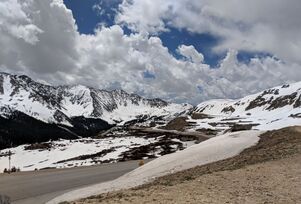 Both the ability to see God in all things and to choose that which leads us closer to Him are predicated upon the essential practice of the discernment of spirits. We must be able to discern in order to recognize God’s presence and therefore to choose rightly, moving closer to God. I cannot emphasize this enough: discernment of spirits as taught by St. Ignatius of Loyola is of the utmost importance. This kind of discernment is not about basic decision making such as whether to wear this shirt or that, or whether or not to cross a street, but it is about recognizing whether something is motivated by goodness or evil; it is about learning to recognize the way the good spirits, (the Holy Spirit and the angels) act as opposed to the actions of the “enemy of human nature” * and his minions, that is, the bad spirits. To be clear, we do not discern between good and evil. This is because good and evil ought to be obvious: we already know to avoid evil and do good. We have the Ten Commandments, all that Jesus taught, and our ‘spiritual common sense’ as ways to know the difference between good and evil, thus we do not have to discern anything here; we clearly choose the good and not the evil. 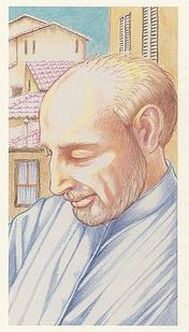 Spiritual discernment, however, is about recognizing what is going on when we are presented with more subtle choices. In other words, it is a process of seeing what is not obvious on first glance in order to either grow closer to God, or so that we do not fall prey to a deception which might lead us away from God without our even realizing it. Therefore, spiritual discernment is prayerful consideration of two (or more) choices, both of which appear to be good, but one of which, as we will discover through the process, is actually better than the other because it leads us closer to God.** Working at this so it becomes a habit is part of how we grow in holiness and it is how we do our best at following the call of God daily; but it also helps us to beware of the deceptions of the evil one who wants us to choose the path away from God through one tiny step at a time. St. Ignatius pointed out that the evil one is a master of deception. In the Spiritual Exercises he wrote that "the angel of darkness likes to masquerade as an angel of light." (Paragraph 332) Therefore the choices at hand may look really good, but one of them could actually contain a hidden evil, leading the person further from God rather than closer to Him. The temptation is to see something that is ordinarily a good thing as something to choose, when for you at this moment it will actually derail your progress. And sometimes the enemy is so bold that he makes something which is otherwise bad appear to be a good, viable choice by tempting us through rationalization. This is why a spiritual director is so important. He or she can assist in the process of discernment because the director is impartial and objective, whereas we are always biased by our own ‘baggage’ and inadvertent self-delusions. Thus, it is imperative to our spiritual life that we learn this process and make it a habit. The world we live in is steeped in an attitude of self-centeredness in which many are becoming their own god or are falling prey to the attitude which says "everything is okay because I say so, or everyone else is doing it, or because it feels good." Truth does not change just because we want it to. We can never be too careful in making choices because the evil one revels in getting us to stray off the course of goodness. Therefore, discernment is an essential tool for our spiritual life.  All that being said, the process begins with weighing one of our two (or more) choices. Essential here is not just the feelings, but whether or not our behaviors are consistent with the gospel and the way the Holy Spirit generally works. In other words, if we see the fruits of the Spirit, if there is an increase in goodness, generosity, selflessness, faith, hope, love, mercy, and all that Jesus taught, then perhaps this is the way the Spirit is calling us. (Galatians 5:22) But if the choice leads us to self (ego), ambition, power, lack of kindness, mercy, or love; if it leads to dissension, factions, or to fear, this can only lead us away from God. Therefore, we need to move away from anything which leads to those ends. As St. Ignatius put it, we need to resist it by moving against it, (a concept referred to as agere contra.) 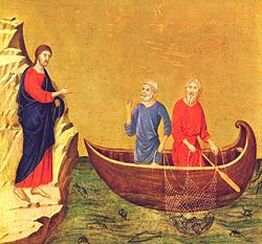 We must recognize that Christianity is counter-cultural and it has been since the beginning. The message of Jesus was not the same as that of the Pharisees who had created their own interpretation of the Law. They interpreted the Old Testament according to their designs, losing sight of its true purpose, (love), and even justified evil as good as well as perceiving some good actions as evil. When the Father sent Jesus to bring His message of Love, to ‘not abolish the Law but to fulfill it,’ those who were not discerning listened to the Pharisees, advertently losing sight of the original intent of the word of God which led to justice, peace, mercy, and love. And even with the teaching of the Gospel by the early Christians, all subsequent generations have wrestled with the same temptations. Therefore, it should not shock us that we continue to struggle with issues needing discernment. But if we learn to discern, we learn to see God in all things. And in learning how to recognize His presence, we can learn how to follow Him rather than to fall prey to the subtle trickery which encourages self over God. And perhaps then we can teach others through our own word and deed.  If we truly want to grow in holiness, and if we listen to the teaching of Jesus with a heart which desires to follow, we can learn to take the path offered by the Spirit. The Good News is that when we do make mistakes, and we will, we have the mercy of God to turn to. Discernment of spirits is not some sort of ‘magical’ method in which we will always make the correct choice. But what it encourages, what St. Ignatius encourages, is that the more prayerful we become in our approach to everything, the more we will see God in all things, and thus, the more we will learn about how He acts. The road to holiness is the road to God: the key is to stay on it so that we might progress, to learn from our deviations from it, and to never cease dialoging with God in prayer. And our hope is to bring as many people as we can along with us. Our good behaviors, works of mercy, attempts at justice which are made simply by living the gospel, are all ways we can combat the work of evil that wants to derail the world. The News is Good, and hope is abundant for those who learn how to see, hear, and discern. If we simply apply the gospel to our choices, we are indeed on the right road. 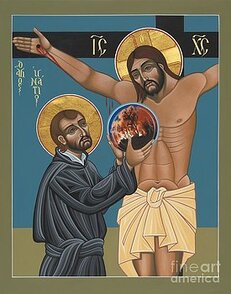 May we ask the intercession of St. Ignatius of Loyola and all the Jesuit saints who have followed in his footsteps to help us to grow in spiritual discernment! May we increase our prayer time to include more reflection upon how God labors for us so that we might grow closer to Him! May we make it a priority to learn more about God by studying the Scriptures and by prayerfully reflecting upon them! May we slow down our pace enough to learn how to savor all the moments of wonder and awe which present themselves to us! And may we find peace, hope, mercy, and love to be the Source and the End for which we yearn: in our discernment, may we find the Lord! Let us continue to meet in the heart of Jesus! Peace! ©Michele L. Catanese Notes: Next post, August 26. * One of the ways that St. Ignatius referred to the devil in the Spiritual Exercises was as "the enemy of human nature." It is an apt description. ** For decisions of greater importance, such as for major life decisions, the prayerful process takes longer than one or two days, and is done over more time, usually a number of weeks. Most of the time however, when we are discerning smaller, everyday matters we do it more quickly. Links to fuller explanations of concepts highlighted in this entry: please click one or more of the following if you desire more information on Ignatian spiritual discernment. https://ignatianresources.com/discernment https://www.ignatianspirituality.com/discernment-different-stages-life/ https://www.ignatianspirituality.com/making-good-decisions/discernment-of-spirits/discernment-in-a-nutshell/ http://www.ignatianspirituality.com/making-good-decisions/discernment-of-spirits/the-devil-comes-cloaked-as-an-angel-of-light/ Bishop Robert Barron on Finding God in All Things https://pivotalplayersfilming.com/commentary1/#top More on the Spiritual Exercises from Bishop Barron https://pivotalplayersfilming.com/commentary2/ On the concept of agere contra https://www.ignatianspirituality.com/acting-against/ Images: 1. Inset of the sun from The Sower by Vincent van Gogh (1888): I chose this for the beginning because this sunrise over a wheat field gives me a similar sensation of wonder and awe as experienced when I viewed the sun rising from my room while in graduate school, as mentioned. 2. My photo, at the continental divide, Loveland, Colorado: This is one of my favorite photos and so I chose it because it was a place which evoked a sense of the presence of God. Indeed these mountains are His handiwork. 3. Pastel drawing, St. Ignatius at Prayer in Rome, Fr. William Hart McNichols: This drawing captures the reflection of Ignatius during his prayer. Perhaps he was discerning something. https://fineartamerica.com/featured/st-ignatius-at-prayer-in-rome-william-hart-mcnichols.html 4. My photo, the Jordan River, border of Israel and Jordan: I felt this this was an appropriate reference to our baptism from which the graces we need for discernment begin. 5. The Calling of the Apostles Peter and Andrew, by Duccio Di Buoninsegna (1308-11): This seemed to be an excellent reference to the discernment of the two future apostles who encountered Jesus while fishing, not knowing exactly who He was. They ultimately discerned to follow, a movement closer to God indeed. 6. My photo in the Highlands of Scotland, near Tomintoul: This photo taken while hiking in Scotland seemed to be a good representation of the spiritual journey. If we read the markings correctly, and do not stray off the path and get lost, we find our ultimate destination. 7. Icon, St. Ignatius and the Passion of the World in the 21st Century, Fr. William Hart McNichols: This seemed like the best image to finish the entry because we are in a confusing world. Like St. Ignatius, we can make a commitment to following the Lord, but we will need to continuously discern as we go. Our trust must be in the Lord who never leaves us. https://fineartamerica.com/featured/st-ignatius-and-the-passion-of-the-world-in-the-21st-century-194-william-hart-mcnichols.html NOTE: In compliance with GDPR rules, I wish to make it clear that I do not gather any information on any of my readers at any time. Comments are closed.
|
Heart Speaks to Heart
|

 RSS Feed
RSS Feed

